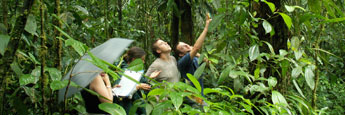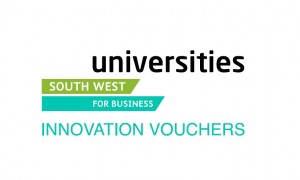A unique collaboration between the Business School (BS), DEC and Applied Sciences (ApSci) combined research, education and practice to create a unique multi-disciplinary academic experience for students and staff. Investigation into the feasibility of harnessing the power of the tide in Poole Harbour was explored using a multi-disciplinary network of projects that connected students, staff, external organisations and the local community. This works was supported by BU through fusion grant (BS, DEC and ApSci).
The project has demonstrated how the student experience is enhanced through the Fusion of education, research and practice in a multidisciplinary network focused on undertaking projects that explore specific real-world issues or opportunities. This project:
- Supported the initial study into exploring the economic, social, technical, environmental and legal feasibility of harnessing energy from Poole Harbour. The study included a series of projects involving students from different disciplines and was used to identify benefits and barriers to success of cross-disciplinary working.
- Developed understanding and evidence of Fusion in practice.
- Promoted an integrated approach to renewable energy to the local, regional, national and international community.
- Developed recommendations for policy making, guidelines and procedures for further Fusion of education, research and practice, and for development of other multi-disciplinary networks.
The BS tutor continues to maintain close relationship with PTEP and Sustainability Knots and as these initiatives make progress and gather momentum is well placed to extend relationships for renewable energy, as well as the social and environmental aspects of sustainability. This includes identifying local opportunities for student participation in projects addressing real issues and opportunities and sharing local experience with professional and community audiences further afield.
BU Academics Dr Zulfiqar Khan and Prof Mark Hadfield (DEC), Sukanya Ayatakshi (BS) and Elena Cantarello (ApSci) exhibited at the govtoday Carbon Reduction 2012 event on 27 November 2012 at the Brewery Conference Centre in London . MSc in Green Economy, IMechE Further Learning Programme, BU research themes, UG/PG courses, resources and expertise were showcased and promoted during the event. Attendees included representatives from relevant government departments, agencies and other public sector organisations.
DEC has established links with international partners in renewable energy and technology, and an external professor visited (externally funded) Sustainable Design Research Centre within DEC,. He delivered a research seminar in renewable energy and participated in education activities and delivered various guest lectures to Design & Engineering Framework students in DEC.
The ApSci tutor Tilak Ginige presented along with a final year ApSci student Stanford Julius, the finding of the Poole Harbour Renewable Energy Feasibilty study at Environmental Law stream at the Royal Institute of Chartered Surveyers COBRA 2012 Conference held in Las Vegas, USA in September 2012.
The first BU wide Renewable Energy & Renewable Technology (RERT) March 29, 2012, the 2nd RERT event took place on Jan 23, 2013. The coming RERT event is as follows.
Thursday Feb 14, 2013
Venue: Octagon (Talbot Campus)
13:00 Lunch
13:30 Introduction and Presentation
- Introduction to project (origin of the project, rationale and business angle)
- Economic feasibility
- Commercial and business engagement
- Programme and project management
14:00 Renewable energy from tidal and heat sources: Different Perspectives
- Learning and teaching within DEC
- Technical dimension
14:30
- Feasibility study: environmental impact and legal implications
- Lesson we can learn from co-production / co creation with undergraduates
15:00 Tea and networking
For further information and booking please click here
Future events for your diary are
FUTURE EVENTS
Festival of Learning RERT Public Engagement Event – June 13, 2013
Ideas Café Ideas Cafe – Design and Technology Event – Innovative thinking in employer engagement – 10th July 2013
 The Environmental Change & Biodiversity Research Theme would like to invite you to their seminar on 5 March. Dr. Peter Bridgewater, Chairman of the Joint Nature Conservation Committee, will lead the seminar and discuss “Biodiversity governance in the Anthropocene”.
The Environmental Change & Biodiversity Research Theme would like to invite you to their seminar on 5 March. Dr. Peter Bridgewater, Chairman of the Joint Nature Conservation Committee, will lead the seminar and discuss “Biodiversity governance in the Anthropocene”.























 SPROUT: From Sustainable Research to Sustainable Research Lives
SPROUT: From Sustainable Research to Sustainable Research Lives BRIAN upgrade and new look
BRIAN upgrade and new look Seeing the fruits of your labour in Bangladesh
Seeing the fruits of your labour in Bangladesh Exploring Embodied Research: Body Map Storytelling Workshop & Research Seminar
Exploring Embodied Research: Body Map Storytelling Workshop & Research Seminar Marking a Milestone: The Swash Channel Wreck Book Launch
Marking a Milestone: The Swash Channel Wreck Book Launch ECR Funding Open Call: Research Culture & Community Grant – Application Deadline Friday 12 December
ECR Funding Open Call: Research Culture & Community Grant – Application Deadline Friday 12 December MSCA Postdoctoral Fellowships 2025 Call
MSCA Postdoctoral Fellowships 2025 Call ERC Advanced Grant 2025 Webinar
ERC Advanced Grant 2025 Webinar Update on UKRO services
Update on UKRO services European research project exploring use of ‘virtual twins’ to better manage metabolic associated fatty liver disease
European research project exploring use of ‘virtual twins’ to better manage metabolic associated fatty liver disease